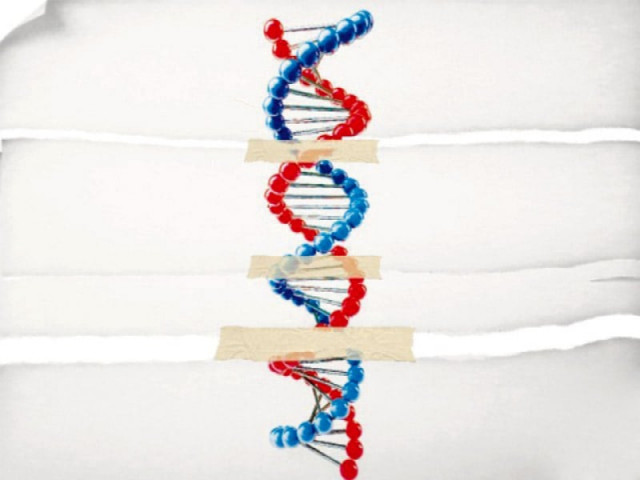DNA testing facility: To build or not to build
Sindh sends all DNA tests to Islamabad as govt claims there is no facility in province

Sindh sends all DNA tests to Islamabad as govt claims there is no facility in province.
Over the past couple of years, the Sindh government has often found itself in a dilemma due to the lack of a deoxyribonucleic acid (DNA) testing facility in the province. In the wake of every accident or natural disaster, where the victim’s bodies cannot be physically identified, the provincial government has had to send samples to Islamabad for identification.
Setting up a DNA testing facility has become a priority for the government but no official seems to have a concrete answer to when and where such a facility will be built. In 2013, the Sindh Assembly had unanimously passed a resolution, calling for DNA identification to be used as primary evidence in rape cases.
A bill to this effect has been pending in the assembly since. The bill, tabled by Pakistan Peoples Party leader Sharmila Farooqi, had called for a DNA testing of the rape survivor within 12 hours of the complaint being registered. What the lawmakers failed to take into equation when they spoke about speedy justice was that there was no DNA testing facility in the province.
When the need arises, the provincial government sends the victims’ samples to the National Forensic Scientific Agency (NFSA) in Islamabad - a process that delays the identification.
The provincial government claims the reason for sending the samples to Islamabad for verification is that there is no such facility in the province. On the contrary, some officials claimed that facilities and even trained personnel are available but the government lacks the political will to set up a proper lab in the province.
Confusion prevails
“I sent the summary to the home department a week before the accident took place,” said Sindh health minister Jam Mehtab Hussain Dahar, referring to a requisition to establish a laboratory.
Dahar said it will be a separate facility that will be able to conduct DNA identification tests. Meanwhile, officials of the health department, who have been part of the process for the last couple of years, said that the chemical examination laboratory, located near Civil Hospital, Karachi, will be upgraded.
“We will not upgrade it, rather a separate DNA laboratory will be set up,” said the minister. The matter is so vague at the moment that Dahar, who is the head of the department, is not even sure when the facility will finally be operational.
On the contrary, chemical examination lab officials still believe the provincial government will upgrade the facility. “We are being told since the last three years that the laboratory will be given the required machinery,” said an official.
For his part, police surgeon Dr Jalil Qadir Memon said there is no laboratory in Karachi or elsewhere in the province that can perform DNA tests on dead tissue. “Only forensic labs can perform the analysis on dead tissue, not genetic labs,” he explained, adding that the laboratories in academic institutions, such as the Karachi University, only dealt with live tissue. Dr Memon said that all such tests in cases of rape, sodomy and post-mortem of unidentified bodies were sent to NFSA in Islamabad.
Lack of vision
Assistant Prof Dr Shakeelur Rehman Farooqui of KU’s genetics department refuted the claims of the police surgeon. He said there were four laboratories in the KU only, where DNA tests can be carried out easily.
“The facility is available in several institutions in Karachi. The problem lies in the lack of vision of the government,” he said, adding that often the faculty members themselves avoided carrying out these tests due to legal complications. “We can train the staff. Let all the things gather at one point and you will have a facility soon,” he added.
Published in The Express Tribune, January 21st, 2015.



















COMMENTS
Comments are moderated and generally will be posted if they are on-topic and not abusive.
For more information, please see our Comments FAQ